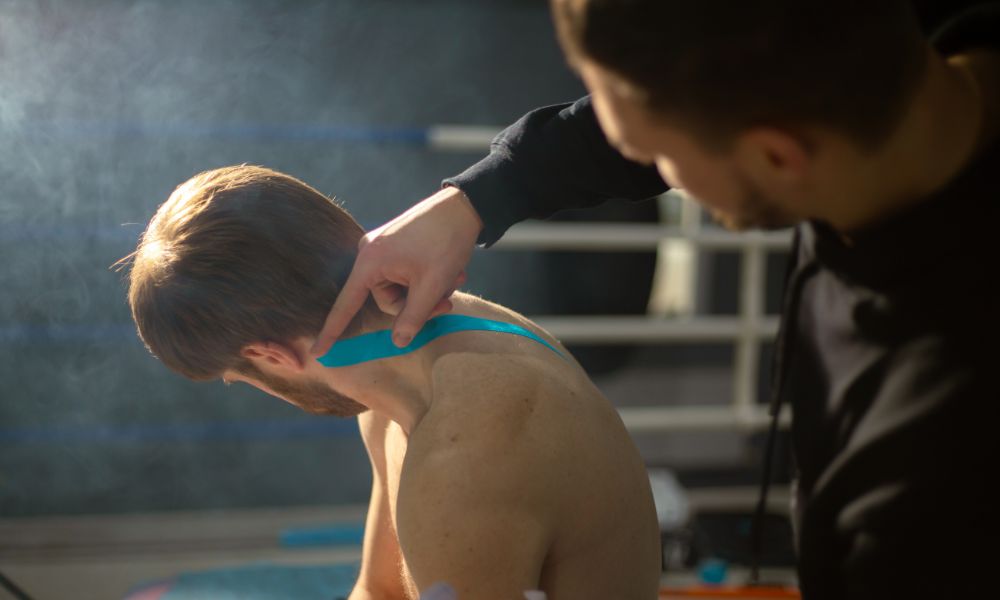Sports Medicine in Nagpur for expert treatment and rehabilitation

Sports Medicine
Sports medicine healthcare professionals are equipped to rehabilitate injured patients, facilitating a swift return to their activities. Their expertise lies in the prevention of illness and injury among active individuals, which encompasses professional athletes, children and adolescents participating in sports, adults engaged in personal fitness routines, and individuals working in physically strenuous jobs, like construction workers.
Although sports medicine is not recognized as an independent medical specialty, many practitioners hold certifications in areas such as internal medicine, emergency medicine, family medicine, or other related fields, complemented by specialized training in sports medicine. Some practitioners concentrate on treating injuries in children and adolescents, whose developing bodies present unique considerations compared to adults, and are board-certified in pediatrics or family medicine, supplemented by additional training in sports medicine. Furthermore, certain sports medicine professionals possess surgical expertise, frequently as orthopedic surgeons.
Other experts who collaborate with sports medicine healthcare providers include:
- Physical Therapists: Facilitate the rehabilitation process and support recovery from injuries.
- Certified Athletic Trainers: Design and implement rehabilitation exercise programs aimed at restoring strength and creating conditioning plans to avert future injuries.
- Nutritionists: Provide nutritional guidance to enhance individuals’ physical performance, including recommendations for weight management.
A sports medicine provider may be consulted for your child in cases of injuries or conditions including sprains, fractures, knee or shoulder injuries, tendonitis, asthma, heat-related illnesses, concussions, eating disorders, or cartilage damage.
Preventive Care and Injury Management
To prevent sports injuries, consider the following steps:
- Formulate a Comprehensive Fitness Regimen: Incorporate cardiovascular workouts, resistance training, and flexibility exercises to minimize the risk of injury.
- Alternate Muscle Groups: Target different muscle groups and allow for recovery every other day.
- Adequate Cooldown: Engage in a cooldown period after physical activity or sports that is twice as long as the warm-up duration.
- Maintain Hydration: Consume sufficient water to avert dehydration, heat exhaustion, and heatstroke.
- Stretching Routines: Enhance muscle contraction and overall performance while lowering the risk of injury. Stretch gradually until you experience muscle tension, holding each stretch for a maximum of 20 seconds.
- Utilize Proper Equipment: Ensure the use of supportive footwear and gear that can address foot issues that may lead to injuries.
- Master Correct Techniques: Familiarize yourself with the proper methods for engaging in your chosen sport.
- Rest When Necessary: Refrain from exercising when feeling fatigued or experiencing pain.
- Strength Training: Execute exercises through their complete range of motion with each repetition.
- Rehabilitation: If you sustain a sports injury, ensure adequate rehabilitation before resuming strenuous activity.
Rehabilitation and Performance Optimization (H2)
Skilled physical therapists cater to a wide range of sports injuries, utilizing a combination of prevention and rehabilitation techniques:
Rehabilitation (H3)
- Stretching and Flexibility Training: Preserve flexibility and range of motion to minimize the risk of injuries.
- Plyometric and Agility Training: Improve explosive strength, speed, and overall agility to enhance resilience against injuries in high-intensity sports.
- Strength and Conditioning: Tailor exercises to ensure that muscles, tendons, and ligaments possess adequate strength to withstand the stresses of sports, while addressing any imbalances and weaknesses.
- Core Stability Training: Foster efficient movement and increased resilience across various sports by cultivating a robust and stable core.
- Functional Movement Screening (FMS): Detect imbalances, mobility limitations, and suboptimal motor patterns prior to injury occurrence, facilitating timely intervention.
Performance Optimization (H3)
- Objective Formulation: Set realistic yet ambitious objectives to maintain motivation and concentration throughout the recovery journey.
- Incremental Advancement: Create rehabilitation plans that advance steadily, fostering confidence while reducing the likelihood of re-injury.
- Emotional Support: Offer encouragement, comfort, and direction during the recovery process to tackle the emotional difficulties linked to sports injuries.
By focusing on these aspects, sports medicine healthcare providers aim to restore function, prevent future injuries, and optimize performance for individuals of all ages and activity levels.